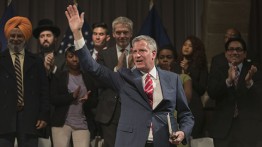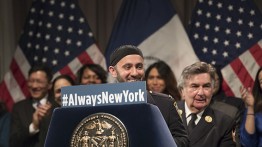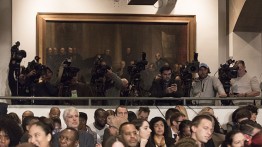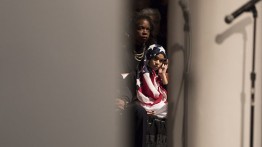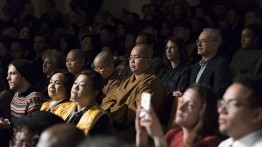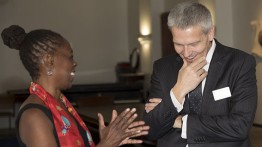In The Great Hall, Mayor de Blasio Vows Resistance to Trump
POSTED ON: November 22, 2016
Mayor Bill de Blasio spoke at The Great Hall on Monday, November 21 to reassure New Yorkers that his administration would not comply with federal policies that singled out any one group of people or created divisiveness. Addressing the capacity crowd for 30 minutes, Mayor de Blasio stated that New York would resist any attempt to create a registry for American Muslims; to reinstate stop-and-frisk policing policies; or to hand over information about undocumented immigrants.
“To all of you, we will protect you. This is your home. We are eight and a half million strong and we ain’t changing,” de Blasio said. “We are always New York. Somos siempre Nueva York.”
De Blasio, who reminded the audience of the momentous historic events that took place in The Great Hall, emphasized New York’s unity in the face of great diversity, noting that people the world over see the city as a place of inclusion. Having met with Donald Trump a week earlier, the mayor said, “My essential message to him was to remember where you come from.”
While the Mayor’s message was largely positive, he expressed alarm about some of the president-elect’s proposals: “I was being interviewed the other day, “ he said, “and someone who believed in Muslim registration used the argument that it was legal because the internment of Japanese-Americans in World War II was legal. That individual didn’t realize that later the Supreme Court said, no, it wasn’t.”
Before de Blasio took the stage, The Cooper Union’s acting president, Bill Mea spoke briefly, pointing out that Peter Cooper created the school to serve all people interested in learning regardless of race or gender. Afterwards, three chaplains, each representing Judaism, Christianity and Islam, led prayers that called for solidarity and fortitude.
They were followed by New York City’s first lady, Chirlane McCray, who encouraged the audience not to succumb to despondency after the election. As part of a mental health initiative this past May, Ms. McCray visited houses of worship all over the city. “No matter where I was, I felt resolve,” she said. “On that weekend we came together and made a promise – a promise to each other to work as one to create a city where every New Yorker can thrive.” She urged New Yorkers to embrace that resolve going forward.

